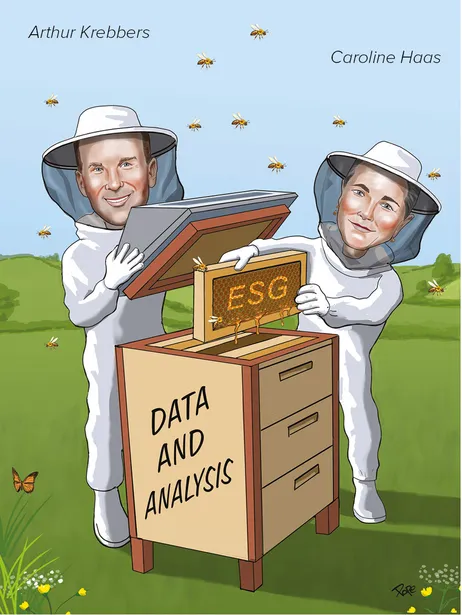ESG Insight: NatWest
Helpful banking
NatWest’s emphasis on ESG education and research and work on policy and industry standards helped the bank punch above its weight. For its thoughtful and academic approach to sustainability, NatWest is the winner of IFR’s ESG Insight Award.

NatWest offers timely and actionable ESG insight backed by a wide range of resources that the bank shares. “We do feel very strongly about collaboration and knowledge-sharing,” said Caroline Haas, global head of climate and ESG capital markets.
The bank does not have a central research point, which means the diversity, depth and quality of its work across a variety of channels could easily be overlooked, but more than 200 publications, webinars and podcasts in 2024 and 35 events are testament to its diligent output.
NatWest aims to raise awareness and understanding of sustainable finance for all counterparties, which often means translating and simplifying content.
Insight and education is tailored to specific audiences on themes including energy transition, policy and regulation, biodiversity and carbon markets. Investor perspectives are added via large sample surveys or interviews with buyside firms to integrate market sentiment.
The bank’s work on Women in Sustainability via a dedicated podcast and a series of events in 2024 promoting leadership opportunities for women and female-led entrepreneurship is one theme that proved particularly popular.
“This had a phenomenal response. It doesn’t happen that often when we invite clients that more than 90% are able to attend, but that’s what we’ve seen,” said Arthur Krebbers, head of corporate climate and ESG capital markets.
The bank uses a sustainable finance leadership toolkit series to support less experienced issuers to understand how to embed sustainability topics like transition and ESG ratings into their treasury operations and also offers content for more sophisticated issuers.
Data use is vital to the way that NatWest builds its insight and relays it back into the market using proprietary databases on investor strategies, sustainable finance frameworks and liquidity and demand statistics to cut through the noise around ESG.
“Where possible, we’re using data to drive through what’s sometimes been a more polarised or emotive environment,” Krebbers said.
NatWest introduced “Beehive” in 2024, a cloud-enabled sustainable technology ecosystem that gives bankers’ real-time ESG insight that has increased climate and ESG data availability.
Beehive is integrated into NatWest’s systems and workflows across front office sales and trading, capital markets and risk. It manages NatWest’s sustainable deals and other key market transactions, allowing the bank to tailor its advisory work and sustainable products.
More traditional strategic research is delivered via the bank’s ESG macro research and sector updates. The ESG Evolution Series on NatWest’s Agile Markets online platform delivers deep data dives and analysis on themes for environmental and social transition.
Blue finance, the role of plastic, social bonds and the effect of coupon step-ups on sustainability-linked bonds are some of the subjects covered, along with the accelerating energy transition via case studies and assessing the quality of transition plans.
Sector updates address industry sustainability trends, compare companies’ performance and examine any correlation with asset performance and emissions reduction in hard-to-abate sectors, including agriculture and food.
Academic research and partnerships with universities are also important for NatWest. Krebbers is a visiting professor at the University of Strathclyde and co-authored analysis of the pricing dynamics of sustainability-linked bonds in one of many academic relationships.
NatWest actively shapes policy via participation in industry collaborations on initiatives such as the International Capital Market Association's Commercial Paper Taskforce on sustainable finance and also shares its research with governments and regulators.
In August, the bank published a report highlighting the action required to accelerate energy efficiency in the man-made environment in the UK with eight recommendations for the government to reduce energy demand.
Increasing ESG data disclosure is driving innovation. In 2024 NatWest carried out in-depth peer analysis on first-generation transition plans on banks, insurers and corporates and the bank translated its findings on best practice and gaps into advisory work on clients' transition plans.
To see the digital version of this report, please click here.
To purchase printed copies or a PDF of this report, please email leonie.welss@lseg.com






